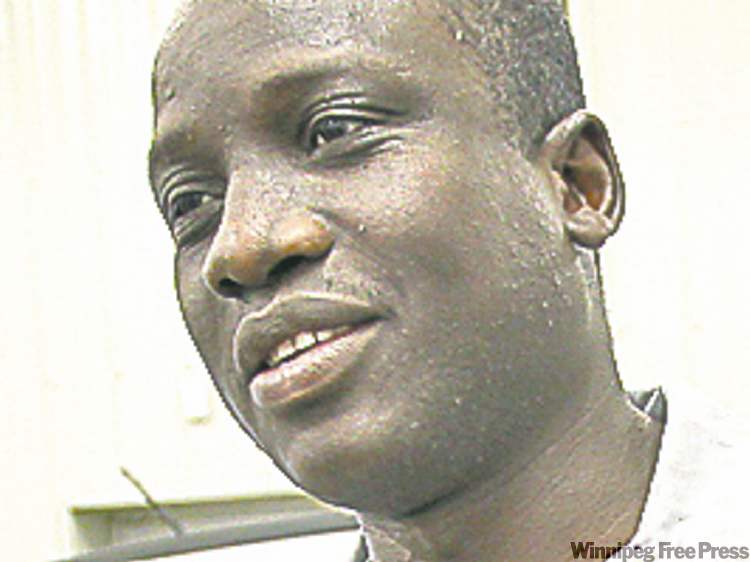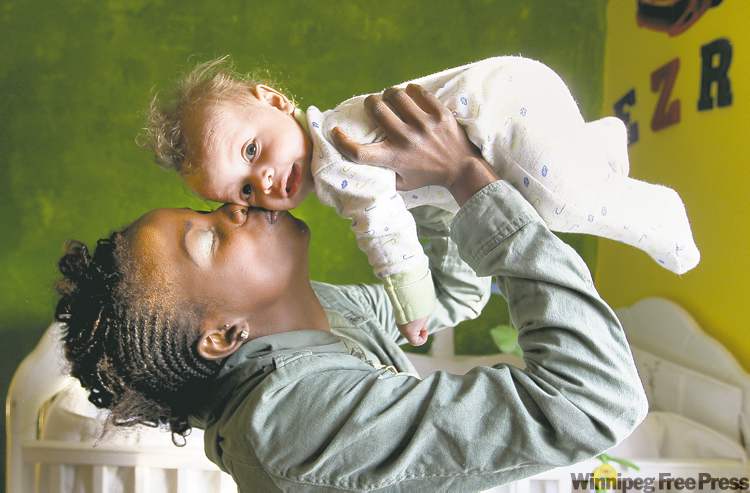Altona feels like home
Refugees counter myths by settling permanently outside urban areas
Advertisement
Read this article for free:
or
Already have an account? Log in here »
To continue reading, please subscribe:
Monthly Digital Subscription
$1 per week for 24 weeks*
- Enjoy unlimited reading on winnipegfreepress.com
- Read the E-Edition, our digital replica newspaper
- Access News Break, our award-winning app
- Play interactive puzzles
*Billed as $4.00 plus GST every four weeks. After 24 weeks, price increases to the regular rate of $19.95 plus GST every four weeks. Offer available to new and qualified returning subscribers only. Cancel any time.
Monthly Digital Subscription
$4.99/week*
- Enjoy unlimited reading on winnipegfreepress.com
- Read the E-Edition, our digital replica newspaper
- Access News Break, our award-winning app
- Play interactive puzzles
*Billed as $19.95 plus GST every four weeks. Cancel any time.
To continue reading, please subscribe:
Add Free Press access to your Brandon Sun subscription for only an additional
$1 for the first 4 weeks*
*Your next subscription payment will increase by $1.00 and you will be charged $16.99 plus GST for four weeks. After four weeks, your payment will increase to $23.99 plus GST every four weeks.
Read unlimited articles for free today:
or
Already have an account? Log in here »
Hey there, time traveller!
This article was published 18/01/2012 (5114 days ago), so information in it may no longer be current.
ALTONA — When police knocked at Salih Hassad’s door in Sudan, he was detained and tortured for almost three months.
So when police showed up unexpectedly at his door in Altona, Hassad’s wife, Shadia, started to have conniptions. Were they going to take her husband away?
It was OK. It was just their friendly neighbourhood Altona police returning a children’s wagon someone had taken from their yard.

“For a little kid’s cart!” said an incredulous Hassad, grateful to his new country.
It was six years ago a group in Altona began sponsoring refugees from Africa.
But of the first seven families that arrived, only two stayed. From an economic-development standpoint, if that was the town’s goal, the experiment to land black African refugees in an all-white Prairie farm town — instead of always in the inner city of some major urban centre — would seem a huge failure.
After all, the community has to raise about $30,000 in donations per refugee family to support that family through its first year.
But while those African families were leaving, others, like Hassad, were talking. Hassad phoned his cousin in Newfoundland and told him Altona had jobs, safety, quiet and a generous and supportive community. His cousin, with his wife and their six kids, packed their things and arrived shortly after.
His cousin liked it so much he recommended it to another African refugee family living in Newfoundland. That family moved, too. Then a family of four Nigerian refugees living in Toronto moved.
Meanwhile, other African refugees continue to arrive thanks to an aggressive sponsorship program by Altona’s Build a Village.
It may be too early to say, but the local Build a Village group seems to be living up to its name: building an African community in the midst of these snowy Prairie fields.
That runs contrary to an assumption among some people that African refugees are somehow predisposed to urban life. That isn’t the experience here.
“I’m getting worse,” said Nurashem Male (MA-lee), 21, who arrived in Altona six years ago with her mom and siblings. By “worse” she means she’s becoming more countrified.
Male is a former contestant for the Altona Sunflower Queen. She catches herself wondering what it would be like to own a small patch of land in the country someday. She and her partner, who is originally from Altona, recently had a baby boy named Ezra and already have a house in town.
Male lost her father and a sister in the Sudanese civil war. To escape, her mother, Dudu, ran through the bush for two days and nights with eight children in tow. They ended up in a refugee camp in Uganda, where Dudu kept her family alive for four years. Dudu prayed — and badgered United Nations officials until she finally got out.
They were placed in an inner-city neighbourhood in Winnipeg. When an opportunity to move to Altona arose, Dudu jumped. “My mom just wanted someplace that was safe,” said Male. “Here, I know almost everybody. Everybody says hi to each other.”

Male has made a deep impression on the community, too. “She’s an incredibly hard worker,” said Ray Loewen, chairman of the nine-member Build a Village committee.
Hassad spent almost four years in a refugee camp in Egypt before arriving here. He works at West Park Motors, where Loewen is president. That same president, his boss, drove Hassad, 34, to school for six months when Hassad first arrived.
Today, he has a wife and three children. “I like it here. I’m from Darfur (in Sudan). I call myself a genocide survivor,” he said.
Altona’s Build a Village’s mission statement, as listed on Facebook, is “to share God’s love locally through work with newcomer families, specifically refugees and displaced persons.” It began with supporting a village in El Salvador. That prompted members to wonder if they could do the same at home.
Build a Village has sponsored 22 refugee families in Altona, of which 14 have stayed, so far. They number about 40 Africans and almost as many Palestinians.
Build a Village plans to get into housing next. It wants to build transitional housing where people can live for a couple of years before they are ready to buy a house. The problem for immigrants in a town like Altona, with 4,000 people, is there are no apartments.
And as for whether newcomers stay? That’s not the primary aim. The aim isn’t economic stimulus. It’s a religious love thing.
“Obviously, we hope (refugees) stay but from the beginning, our goal is to give them a good start in Canada, regardless of whether they stay. If they stay, great. That’s a bonus,” said Loewen.
“To see people like Salih starting a family, learning the language, making friends here, that is a very good feeling, for sure.”
bill.redekop@freepress.mb.ca

